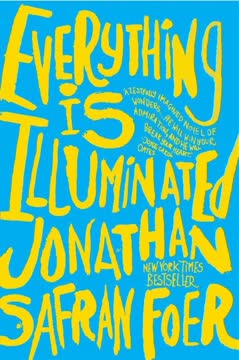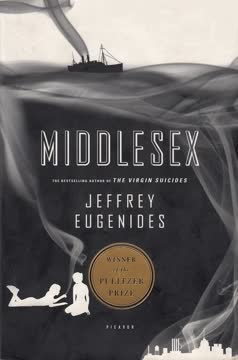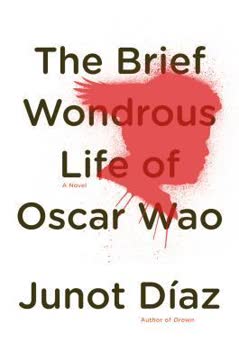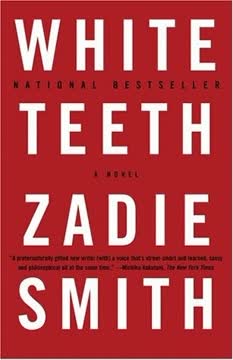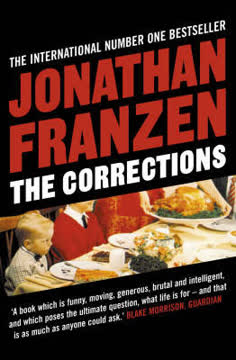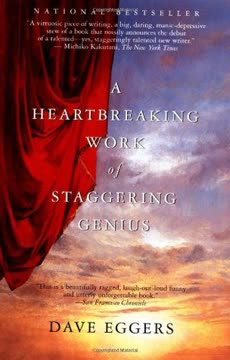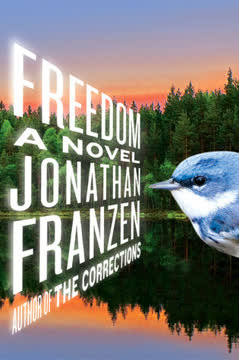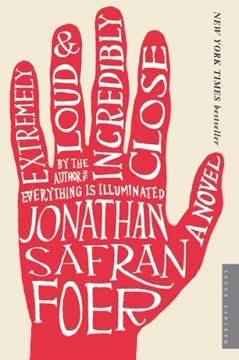Plot Summary
Two Journeys Begin
The novel opens with two intertwined journeys: Jonathan Safran Foer, a young American Jew, travels to Ukraine to find the woman who saved his grandfather from the Nazis, while his Ukrainian translator, Alex, seeks to escape the confines of his own ordinary life. Their paths cross in a landscape haunted by the past, as they are joined by Alex's irascible grandfather and a deranged dog, Sammy Davis, Junior, Junior. The narrative alternates between Jonathan's quest and the history of Trachimbrod, a vanished shtetl, blending fact, fiction, and memory. Both journeys are propelled by longing—for family, for understanding, for forgiveness—and by the hope that the past can be illuminated, if only partially, by the present.
The Shtetl's Secret Origins
Trachimbrod, the lost Jewish shtetl, is born from legend and accident: a wagon plunges into the Brod River, a baby girl is found among the wreckage, and the community's history is set in motion. The shtetl's identity is shaped by stories, rituals, and the tension between sacred and secular, Uprighters and Slouchers. Its name, chosen by lottery, is both a joke and a defiance of erasure. The town's history is a tapestry of love, loss, and absurdity, recorded in the ever-expanding Book of Antecedents. Trachimbrod becomes a symbol of the Jewish experience—rooted in memory, shaped by trauma, and always on the verge of disappearance.
Inheritance of Loss
The narrative delves into the lives of Brod, the miraculous river child, and Yankel, her adoptive father. Both are marked by loss—Brod by the mystery of her origins, Yankel by shame and abandonment. Their relationship is built on stories, half-truths, and the desperate hope that love can fill the void left by absence. Brod grows into a prodigy of sadness, cataloging 613 unique sadnesses, while Yankel tries to shield her from the world's cruelty. Their love is real but incomplete, a reflection of the impossibility of true understanding between generations. The past is both a burden and a gift, shaping the lives of those who inherit it.
The Search for Augustine
Jonathan, Alex, and Grandfather set out to find Augustine, the woman who may have saved Jonathan's grandfather. Their journey is fraught with misunderstandings, cultural clashes, and the absurdities of post-Soviet Ukraine. Along the way, they confront their own prejudices and limitations, as well as the ghosts of history. The search becomes a metaphor for the impossibility of fully recovering the past, and for the ways in which memory and identity are constructed from fragments, rumors, and longing. The journey is as much about self-discovery as it is about finding Augustine.
The Book of Dreams
Trachimbrod's history is preserved in the Book of Recurrent Dreams, a communal record of hopes, fears, and recurring visions. The dreams reflect the anxieties and desires of the shtetl's inhabitants, blurring the line between memory and imagination. The act of remembering becomes a form of prayer, a way of keeping the past alive in the face of oblivion. The book is both a comfort and a curse, binding the community together even as it reminds them of their mortality and the inevitability of loss.
Brod and the River
Brod, the river child, grows up surrounded by love and suspicion. She is adored by the men of the shtetl and resented by the women, who see her as an outsider. Her relationship with Yankel is tender but haunted by secrets. Brod's intelligence and sensitivity set her apart, and she becomes a prism for the community's sadness. Her life is a search for meaning in a world that often seems indifferent to suffering. The river, both a source of life and a symbol of death, flows through her story, connecting her to the origins and fate of Trachimbrod.
Love and Its Absence
Love in the novel is always complicated—by history, by trauma, by the limitations of language and understanding. Brod's marriage to the Kolker is marked by violence and tenderness, by the literal and metaphorical wounds that shape their lives. The Kolker's injury transforms him, making him both more and less himself. Their attempts at intimacy are both moving and tragic, as they struggle to bridge the gap between their bodies and souls. Love is shown as both a salvation and a source of pain, something to be pursued even when it cannot be fully attained.
The Kolker's Curse
The Kolker, Brod's husband, is maimed by a saw blade, which leaves him prone to fits of rage and violence. Their marriage becomes a microcosm of the larger tragedies that befall the shtetl. Brod endures his abuse with a mixture of resignation and hope, believing that love can redeem even the most broken of lives. The Kolker's suffering is both physical and existential, a reminder of the randomness of fate and the difficulty of forgiveness. Their story is a meditation on the ways in which trauma is passed down, and on the possibility of finding meaning in suffering.
The Weight of Memory
As the narrative moves toward the Holocaust, memory becomes increasingly fraught. The inhabitants of Trachimbrod are paralyzed by their attempts to remember and make sense of their lives. The past is ever-present, shaping their actions and their sense of self. For Jonathan and Alex, the act of remembering is both a duty and a source of pain. The novel suggests that memory is necessary for survival, but also that it can be overwhelming, leading to inertia and despair. The challenge is to find a way to live with memory without being destroyed by it.
The Rigid Search
The search for Trachimbrod and Augustine becomes increasingly desperate as the travelers realize how little remains of the past. The landscape is empty, the people they meet are unable or unwilling to help, and the traces of the shtetl have been erased. The journey forces each character to confront their own limitations and the impossibility of fully understanding or recovering what has been lost. The search is both a literal and metaphorical quest, a confrontation with the void at the heart of history and identity.
Trachimbrod's Vanishing
When the travelers finally reach the site of Trachimbrod, they find nothing but an empty field and a monument to the murdered Jews. The shtetl has been obliterated, its inhabitants killed or scattered, its memory preserved only in stories and artifacts. The encounter with Lista, the last survivor, is both a revelation and a disappointment—she cannot provide the closure or answers they seek. The vanishing of Trachimbrod becomes a symbol of the Holocaust, of the destruction of entire worlds and the impossibility of true restitution.
The Truth of Survival
The novel's climax comes with the revelation of Grandfather's secret: during the war, he was forced to identify his best friend, Herschel, as a Jew, condemning him to death. This confession is both a burden and a release, a moment of truth that illuminates the complexity of survival. The novel refuses easy judgments, showing that in situations of extreme violence, choices are often impossible, and guilt is inescapable. The truth of survival is that it is always compromised, always shadowed by loss and regret.
The Burden of Choice
The characters are haunted by the choices they and their ancestors have made. Grandfather's confession forces Alex and Jonathan to confront the limits of forgiveness and the complexity of moral responsibility. The novel suggests that to live is to choose, and that every choice carries consequences that ripple through generations. The burden of choice is both individual and collective, shaping families, communities, and histories. Forgiveness is shown as both necessary and impossible, an ongoing process rather than a final act.
The End of the World
The destruction of Trachimbrod is recounted in harrowing detail, as the Nazis massacre the inhabitants and erase the town from the map. The novel mourns the loss of a world, but also insists on the importance of remembering and bearing witness. The end of the world is not the end of memory or love; the stories of Trachimbrod survive in the artifacts, dreams, and hearts of those who come after. The novel ends with a sense of both devastation and resilience, a recognition that even in the face of annihilation, something endures.
Letters Across Time
Throughout the novel, letters between Alex and Jonathan provide a meta-narrative, reflecting on the process of storytelling, translation, and the search for truth. These letters are by turns humorous, poignant, and philosophical, revealing the deepening friendship between the two men and their struggles with their own families and histories. The correspondence becomes a way of working through trauma, misunderstanding, and the desire for connection. The act of writing is shown as both a means of survival and a form of love.
Forgiveness and Farewell
In the aftermath of their journey, the characters are changed. Grandfather's suicide is both a tragedy and an act of release, a way of ending the cycle of guilt and violence. Alex confronts his own family's legacy, choosing to break with his abusive father and care for his brother. Jonathan returns to America, carrying with him the stories and artifacts of Trachimbrod. The novel suggests that forgiveness is possible, but only through honesty, courage, and the willingness to let go of the past. Farewell is both an ending and a beginning.
Illumination
The novel concludes with a sense of illumination—not the revelation of all answers, but the acceptance of uncertainty, loss, and the persistence of love. The characters have not found everything they sought, but they have found each other, and a way to live with the past. The act of storytelling itself becomes a form of illumination, a way of making sense of chaos and honoring those who have been lost. The final message is one of hope: that even in the darkest times, everything can be illuminated, if only for a moment.
Characters
Jonathan Safran Foer
Jonathan is a young American Jew driven by a need to uncover his family's past and understand the trauma that shaped his identity. His quest to find Augustine is both literal and symbolic—a search for the woman who saved his grandfather, and for a sense of belonging in a world marked by loss. Jonathan is introspective, sensitive, and sometimes naïve, struggling with the limitations of memory and the ethics of storytelling. His journey forces him to confront uncomfortable truths about history, love, and the impossibility of full understanding. Through his interactions with Alex and Grandfather, Jonathan learns the value of empathy, forgiveness, and the necessity of embracing ambiguity.
Alex Perchov
Alex is Jonathan's Ukrainian translator and guide, a young man eager to escape the constraints of his provincial life. He is charming, funny, and earnest, often using malapropisms and invented English to mask his insecurities. Alex's relationship with his family—especially his abusive father and beloved younger brother, Little Igor—is fraught with tension and longing. Over the course of the novel, Alex matures, confronting the violence and secrets in his own family and choosing to break the cycle. His friendship with Jonathan becomes a source of growth and self-discovery, as he learns to value honesty, vulnerability, and the power of storytelling.
Grandfather (Alexander Perchov Sr.)
Grandfather is a complex figure, haunted by his actions during the war, when he was forced to betray his best friend, Herschel, to the Nazis. His blindness—real or feigned—serves as a metaphor for his inability to face the past. Grandfather's relationship with Alex is marked by both affection and distance, shaped by the trauma he cannot articulate. His journey with Jonathan and Alex becomes a reckoning with his own guilt, culminating in his confession and eventual suicide. Grandfather embodies the moral ambiguities of survival, the burden of memory, and the longing for forgiveness.
Brod
Brod is the miraculous child found in the river, raised by Yankel in Trachimbrod. She is brilliant, sensitive, and deeply melancholic, cataloging the world's sadnesses and searching for meaning in a life marked by loss. Brod's relationships—with Yankel, with the Kolker, with the community—are shaped by her sense of otherness and her inability to fully connect. She becomes a symbol of the Jewish experience: beloved and isolated, resilient and vulnerable. Brod's story is one of yearning for love and understanding in a world that often denies both.
Yankel D.
Yankel is Brod's adoptive father, a man marked by disgrace and abandonment. He tries to protect Brod from the world's cruelty by inventing stories and shielding her from painful truths. Yankel's love is genuine but flawed, shaped by his own insecurities and the impossibility of erasing the past. His relationship with Brod is tender and tragic, a reflection of the limits of parental love and the inevitability of loss. Yankel's death leaves Brod alone, but also free to seek her own path.
The Kolker (Shalom)
The Kolker is Brod's husband, a strong and kind man transformed by a workplace accident that leaves a saw blade embedded in his skull. The injury changes his personality, making him prone to violence and rage. Brod endures his abuse with a mixture of resignation and hope, believing that love can redeem even the most broken of lives. The Kolker's suffering is both physical and existential, a reminder of the randomness of fate and the difficulty of forgiveness. His story is a meditation on the ways in which trauma is passed down, and on the possibility of finding meaning in suffering.
Augustine / Lista
Augustine, later revealed as Lista, is the woman Jonathan seeks in Ukraine. She is the last survivor of Trachimbrod, living alone among the artifacts and memories of a vanished world. Her story is one of endurance and loss, marked by the trauma of witnessing the destruction of her family and community. Lista's refusal to provide easy answers or closure forces the travelers to confront the limits of their quest. She embodies the resilience of memory and the impossibility of full restitution.
Herschel
Herschel is Grandfather's best friend, a Jew betrayed to the Nazis in a moment of impossible choice. His fate haunts Grandfather and becomes a symbol of the moral ambiguities of survival. Herschel's presence in the narrative is both literal and metaphorical, representing the countless lives lost to violence and the enduring weight of guilt.
Zosha
Zosha is Safran's wife, a young woman whose marriage is overshadowed by the traumas of war and the complexities of love. Her innocence and vulnerability contrast with the darkness of the world around her. Zosha's fate—killed with her child during the destruction of Trachimbrod—embodies the novel's themes of loss, memory, and the fragility of happiness.
Little Igor
Little Igor is Alex's younger brother, a quiet and clumsy boy who represents hope for a better future. Alex's love for Little Igor motivates many of his actions, and his desire to protect his brother from the violence and secrets of their family becomes a central part of his own journey. Little Igor's presence in the novel is a reminder of the importance of care, responsibility, and the possibility of breaking the cycle of trauma.
Plot Devices
Nonlinear Narrative and Interwoven Timelines
The novel employs a nonlinear structure, weaving together Jonathan's contemporary journey, Alex's letters, and the mythic history of Trachimbrod. This braided narrative allows for the exploration of memory, trauma, and identity across time and space. The interwoven timelines create a sense of simultaneity, blurring the boundaries between past and present, fact and fiction. The use of letters and metafictional commentary further complicates the narrative, inviting readers to question the nature of truth and the reliability of storytelling.
Magical Realism and Absurdity
The history of Trachimbrod is told with a blend of magical realism and absurdist humor, incorporating elements of folklore, myth, and surrealism. Miraculous births, talking animals, and improbable coincidences coexist with the harsh realities of violence and loss. This stylistic choice reflects the ways in which memory and trauma are processed, and the necessity of invention in the face of unspeakable suffering. The absurdity of the narrative serves both to distance and to deepen the emotional impact of the story.
Artifacts and Objects as Memory
Throughout the novel, objects—photographs, rings, books, boxes—serve as tangible links to the past. These artifacts are both evidence and symbols, carrying the weight of memory and the hope of connection. The act of searching for, discovering, and interpreting these objects becomes a central plot device, reflecting the characters' desire to make sense of their histories and to find meaning in loss.
Confession and Testimony
The novel's emotional climax hinges on Grandfather's confession of his betrayal during the war. This act of testimony is both a release and a new source of pain, forcing the characters to confront the complexities of guilt, responsibility, and forgiveness. The structure of the novel, with its letters and stories within stories, mirrors the process of confession and the difficulty of bearing witness to trauma.
Metafiction and Self-Reflection
The novel is deeply self-aware, with frequent commentary on the act of writing, translation, and the construction of narrative. The correspondence between Alex and Jonathan serves as a meta-narrative, reflecting on the challenges and ethics of representing the past. This self-reflexivity invites readers to question the boundaries between truth and fiction, and to consider the role of storytelling in healing and remembrance.
Analysis
Everything is Illuminated is a novel about the search for origins in a world marked by loss and violence. Through its interwoven narratives, the book explores the ways in which individuals and communities construct meaning from fragments, artifacts, and stories. The novel refuses easy answers, insisting on the complexity of history, the ambiguity of survival, and the impossibility of full restitution. Yet it also affirms the necessity of remembering, the possibility of forgiveness, and the power of love—even when it is incomplete or impossible. By blending humor, tragedy, and magical realism, Foer creates a work that is both deeply personal and universally resonant, a testament to the resilience of the human spirit and the enduring importance of bearing witness. In a world where so much has been lost, the act of storytelling becomes an act of illumination—a way of honoring the past, understanding the present, and imagining a future.
Last updated:
FAQ
Synopsis & Basic Details
What is Everything is Illuminated about?
- A Dual Quest for Roots: Everything is Illuminated follows Jonathan Safran Foer, a young American Jew, on his journey to Ukraine to find Augustine, the woman who saved his grandfather from the Nazis. This quest is facilitated by his eccentric Ukrainian translator, Alex, Alex's "blind" grandfather, and a "deranged" dog named Sammy Davis, Junior, Junior.
- Unearthing a Lost Shtetl: Interwoven with Jonathan's contemporary search is the fantastical, tragic history of Trachimbrod, the vanished Jewish shtetl from which his ancestors hailed. This historical narrative, penned by Alex in his unique English, chronicles generations of love, loss, and the absurdities of life in a community destined for annihilation.
- Memory, Identity, and Storytelling: The novel explores profound themes of memory, identity, and the redemptive, yet often unreliable, power of storytelling. It delves into how personal and collective histories are constructed, remembered, and sometimes invented, in the face of unspeakable trauma and the desire for connection and forgiveness.
Why should I read Everything is Illuminated?
- Unique Narrative Voice: Jonathan Safran Foer's novel offers an unparalleled reading experience through Alex's distinctive, malapropism-laden English, which infuses humor and pathos into a deeply moving story. This stylistic choice makes the narrative both accessible and profoundly original, inviting readers to engage with language in a fresh way.
- Profound Thematic Depth: Beyond its engaging plot, Everything is Illuminated delves into universal themes of generational trauma, the search for identity, the complexities of love and forgiveness, and the enduring impact of historical events like the Holocaust. It challenges readers to consider the nature of truth and the role of memory in shaping who we are.
- Emotional Resonance and Humor: Despite its tragic undertones, the book is filled with moments of unexpected humor and genuine warmth, particularly in the evolving relationship between Jonathan and Alex. It masterfully balances light and shadow, leaving a lasting emotional impression that is both heartbreaking and hopeful.
What is the background of Everything is Illuminated?
- Post-Soviet Ukrainian Setting: The contemporary narrative is set in post-Soviet Ukraine, a landscape still grappling with its complex history and the lingering shadows of World War II. This backdrop highlights the cultural clashes and misunderstandings between Jonathan's American perspective and Alex's Ukrainian reality, enriching the Everything is Illuminated themes of identity and heritage.
- Holocaust and Lost Shtetls: The historical core of the novel is rooted in the destruction of Jewish shtetls (villages) in Eastern Europe during the Holocaust. Trachimbrod, though fictionalized, represents the countless communities and lives obliterated by Nazi atrocities, emphasizing the importance of Holocaust memory and the search for lost histories.
- Author's Personal Quest: Jonathan Safran Foer drew inspiration from his own journey to Ukraine to find the woman who saved his grandfather during the war. This personal connection imbues the narrative with authenticity and a deep sense of purpose, making the Everything is Illuminated analysis resonate with real-world historical inquiry.
What are the most memorable quotes in Everything is Illuminated?
- "The beginning of the world often comes.": This recurring phrase, appearing in chapter titles and narrative reflections, encapsulates the novel's cyclical view of history, loss, and renewal. It suggests that endings are always followed by new beginnings, even in the face of profound destruction, a key Everything is Illuminated theme.
- "I am not sad. I am not sad.": Yankel's repeated mantra, particularly after his wife leaves him, reveals the profound psychological complexity of denial and the human struggle to cope with overwhelming grief. This quote highlights the internal battles of Everything is Illuminated characters against their own emotional realities.
- "Everything is illuminated by the light of the past.": While not an exact quote, the novel's title and its pervasive message emphasize how understanding history, even its darkest parts, sheds light on the present and future. This central idea drives the Everything is Illuminated explained narrative, suggesting that truth, however painful, brings clarity.
What writing style, narrative choices, and literary techniques does Jonathan Safran Foer use?
- Epistolary and Metafictional Structure: The novel employs an innovative epistolary format through Alex's letters to Jonathan, which serve as a meta-commentary on the act of writing itself. This narrative structure in Everything is Illuminated allows for self-reflection on truth, fiction, and the challenges of translation, blurring the lines between author, translator, and character.
- Magical Realism and Absurdist Humor: Foer masterfully blends the mundane with the miraculous, incorporating elements of magical realism in literature into the history of Trachimbrod. Talking animals, improbable events, and Alex's unique linguistic flourishes create a distinctive, often humorous, tone that contrasts sharply with the underlying tragedy, a hallmark of Jonathan Safran Foer's writing style.
- Interwoven Timelines and Shifting Perspectives: The narrative constantly shifts between Jonathan's contemporary quest and Alex's imaginative retelling of Trachimbrod's past, often jumping centuries within a single chapter. This nonlinear narrative technique emphasizes the interconnectedness of generations and the enduring weight of history, making the past feel vibrantly alive in the present.
Hidden Details & Subtle Connections
What are some minor details that add significant meaning?
- Sammy Davis, Junior, Junior's Name: The dog's name, chosen by Grandfather after his favorite singer, Sammy Davis, Junior, a Black Jewish convert, subtly introduces themes of identity, conversion, and unexpected connections across cultures and religions. This detail foreshadows the complex, often surprising, revelations about Jewish identity and heritage that unfold in the Everything is Illuminated analysis.
- The Dial's Evolving Face: The bronze statue in Trachimbrod, initially a symbol of strength and vigilance, is rebronzed monthly, its face modeled after the Kolker's male descendants. This detail subtly illustrates the concept of "reverse heredity" and how the past is continually reshaped by the present, a profound Everything is Illuminated symbolism of memory's malleability.
- Brod's "613 Sadnesses": Brod's meticulous cataloging of 613 unique sadnesses, mirroring the 613 commandments of the Torah, is a poignant detail that elevates her personal melancholy to a spiritual and communal level. It highlights her role as a "prodigy of sadness" and connects individual suffering to a broader Jewish tradition of law and lament, a key aspect of Brod's sadness.
What are some subtle foreshadowing and callbacks?
- Grandfather's "Anna?": Grandfather's repeated utterance of his deceased wife's name, Anna, when he wakes from sleep, subtly foreshadows his deep-seated grief and the profound impact of her loss on his mental state. This recurring detail hints at the emotional weight he carries, which is later revealed to be intertwined with his wartime trauma, a crucial element of Grandfather's guilt.
- The "I will... I will..." Resolution: The fragmented resolution found in Trachim B's wagon wreckage, "I will... I will...", is a subtle callback that echoes throughout the novel, representing the unfinished intentions and unfulfilled promises of past generations. It underscores the enduring human drive to act and create, even in the face of uncertainty and destruction, a powerful Everything is Illuminated theme.
- The "Hole" Motif: From the egg-sized hole for women to view the ark in the synagogue to the hole in the wall between Brod and the Kolker, and the ultimate "hole" of Trachimbrod's destruction, this recurring motif subtly connects physical and emotional voids. It symbolizes absence, separation, and the spaces through which intimacy and truth can sometimes emerge, a rich layer of Everything is Illuminated symbolism.
What are some unexpected character connections?
- Alex and Jonathan as Literary Collaborators: Beyond their roles as translator and author, Alex and Jonathan develop an unexpected literary partnership, with Alex actively shaping the narrative through his "corrections" and inventions. This meta-connection highlights the collaborative nature of storytelling and the blurring of authorial lines, a unique aspect of Jonathan Safran Foer's writing style within the novel.
- Grandfather and Lista's Shared Past: The revelation that Grandfather (Alex's grandfather) and Lista (the woman Jonathan seeks) both hail from Kolki and share a traumatic past, including the betrayal of Herschel, creates a deeply unexpected and painful connection. This link underscores the pervasive reach of Holocaust memory and the shared burdens of survival, impacting Grandfather's guilt.
- Safran's Dead Arm and Female Attraction: Safran's physically "dead" right arm, a result of early malnutrition, unexpectedly becomes a source of attraction for women, who are drawn to its "unknowability" and "unattainability." This paradoxical connection reveals a complex psychological dynamic where vulnerability and perceived weakness can evoke profound desire, adding depth to character development in Everything is Illuminated.
Who are the most significant supporting characters?
- Sammy Davis, Junior, Junior: The "deranged" Seeing Eye bitch serves as more than comic relief; she acts as a barometer for the emotional tension in the car and a catalyst for character interactions. Her actions, like eating Jonathan's documents or licking his cologne, often reveal unspoken anxieties or desires, adding a layer of Everything is Illuminated symbolism to the journey.
- Little Igor: Alex's younger brother, Little Igor, represents innocence, vulnerability, and the future Alex desperately wants to protect and shape. His clumsiness and quiet understanding highlight Alex's evolving sense of responsibility and his desire to break cycles of family violence, making him central to Alex Perchov's motivations.
- The Dial: The bronze statue in Trachimbrod's square, initially a monument to the Kolker, becomes a living, evolving character through its rebronzing and its "conversations" with Safran. It embodies the collective memory and changing identity of the shtetl, serving as a powerful symbol of how history is continually reinterpreted and reshaped, a key piece of Trachimbrod history.
Psychological, Emotional, & Relational Analysis
What are some unspoken motivations of the characters?
- Grandfather's Quest for Absolution: Grandfather's initial reluctance to join the trip, followed by his intense desire to find Augustine, is driven by an unspoken, profound need for absolution for his wartime actions. His feigned blindness and melancholy are outward manifestations of his internal struggle with Grandfather's guilt, seeking a form of redemption he cannot articulate.
- Alex's Pursuit of "Premiumness": Alex's constant striving for "premium" English, his fabricated stories of sexual conquests, and his desire to move to America are deeply rooted in an unspoken motivation to escape his "ordinary" life and the perceived mediocrity of his family. This reveals his deep-seated insecurities and aspirations for a more significant identity, central to Alex Perchov's motivations.
- Brod's Search for Authentic Love: Brod's "genius of sadness" and her resistance to conventional love stem from an unspoken yearning for a love that is truly honest and un-"once-removed." Her complex relationships, particularly with the Kolker, reflect her deep psychological need to find genuine connection in a world she perceives as inherently flawed and dishonest, a core aspect of Brod's sadness.
What psychological complexities do the characters exhibit?
- Grandfather's Selective Memory and Denial: Grandfather exhibits complex psychological defense mechanisms, including selective blindness and denial regarding his past. His inability to acknowledge his actions directly, instead speaking in riddles or through others, showcases the profound impact of trauma and memory in fiction on his psyche, a central aspect of Grandfather's guilt.
- Alex's Performative Identity: Alex constructs a performative identity through his exaggerated stories and linguistic inventions, a coping mechanism to navigate his difficult family dynamics and societal expectations. His internal conflict between his fabricated self and his true desires reveals the psychological complexities of self-invention and the search for authenticity, a key element of Alex Perchov's motivations.
- Safran's Paradoxical Love and Self-Loathing: Jonathan's grandfather, Safran, displays a complex mix of promiscuity and an inability to truly love, coupled with a deep, unacknowledged self-loathing. His "dead arm" becomes a physical manifestation of his emotional detachment, highlighting the psychological toll of early trauma and the difficulty of forming genuine connections, a crucial part of character development in Everything is Illuminated.
What are the major emotional turning points?
- The Shared Laughter over the Potato: The scene in the Lutsk restaurant where Jonathan, Alex, and Grandfather share violent, tearful laughter over a dropped potato marks a significant emotional turning point. It's a moment of unexpected, raw connection and release, transcending language and individual sadness, symbolizing a nascent bond and shared humanity amidst their disparate quests.
- Grandfather's Confession of Herschel's Betrayal: The climax of the novel, Grandfather's confession of betraying his best friend, Herschel, to the Nazis, is a devastating emotional turning point. This act of confession and testimony shatters Alex's idealized image of his grandfather and forces both Alex and Jonathan to confront the brutal realities of survival and the profound weight of guilt, a core Everything is Illuminated theme.
- Alex's Decision to Protect Grandfather: Alex's choice not to give Grandfather money for a futile search for Augustine, believing it would lead to his death, and his subsequent decision to care for his family after Grandfather's suicide, marks his emotional maturation. This turning point signifies his acceptance of responsibility and his shift from self-serving ambition to selfless love, defining Alex Perchov's motivations.
How do relationship dynamics evolve?
- Alex and Grandfather's Deepening Bond: Initially marked by Alex's resentment and Grandfather's gruffness, their relationship evolves from obligation to a profound, unspoken understanding. The shared journey and Grandfather's eventual confession forge a deeper, albeit painful, connection, transforming Alex's perception of his grandfather and his own family legacy, central to Everything is Illuminated characters.
- Jonathan and Alex's Friendship as a Mirror: The friendship between Jonathan and Alex develops from a transactional arrangement into a genuine, mutually transformative bond. Their epistolary exchanges and shared experiences allow them to reflect on each other's lives, acting as mirrors for their own insecurities, aspirations, and the complexities of their respective family histories, a key aspect of identity in Everything is Illuminated.
- Brod and Yankel's "Saving Lie" Love: The relationship between Brod and her adoptive father, Yankel, is built on a "great and saving lie" about her origins and his past. This dynamic, though rooted in deception, is characterized by deep affection and mutual protection, illustrating how love can manifest in complex, imperfect ways, and how fictions can be necessary for survival, a poignant love and loss theme.
Interpretation & Debate
Which parts of the story remain ambiguous or open-ended?
- Grandfather's True Blindness: The novel leaves ambiguous whether Grandfather's blindness is literal or a psychological manifestation of his inability to confront his past. Alex initially dismisses it as feigned, but later acknowledges its emotional depth ("the melancholy is what makes Grandfather unhealthful, and it is what makes him blind"). This ambiguity deepens the exploration of Grandfather's guilt and the nature of truth.
- The Identity of Augustine/Lista: While the woman they find is named Lista, the narrative consistently refers to her as "the woman we continued to think of as Augustine." This ambiguity, coupled with her denial of being Augustine, leaves open the question of whether she is the "Augustine" Jonathan's grandfather knew, or if "Augustine" is a symbolic figure, a representation of the lost savior, adding to the Everything is Illuminated ending meaning.
- The Nature of "Love" in the Novel: The book frequently questions and redefines love, presenting it as a "saving lie," a "sickness," or something "once-removed." The ambiguous nature of love, particularly in relationships like Brod and the Kolker's or Safran and the Gypsy girl's, invites readers to debate whether true, unconditional love is ever fully attainable or if it's always intertwined with pain and compromise, a central love and loss theme.
What are some debatable, controversial scenes or moments in Everything is Illuminated?
- Grandfather's Betrayal of Herschel: The scene where Grandfather identifies Herschel as a Jew to the Nazis is profoundly controversial, forcing readers to confront the impossible moral choices made during the Holocaust. This moment sparks debate about forgiveness themes, survivor's guilt, and whether such an act, born of self-preservation, can ever be truly forgiven or understood.
- Safran's Infidelity on His Wedding Day: Jonathan's grandfather, Safran, engages in sexual acts with his bride's younger sister on his wedding day, a scene that is both shocking and morally ambiguous. This moment challenges traditional notions of fidelity and love, prompting discussion about the complexities of human desire and the impact of past trauma on present actions, a key aspect of character development in Everything is Illuminated.
- The Kolker's Abuse of Brod: The depiction of the Kolker's physical and emotional abuse of Brod, stemming from his saw-blade injury, is a difficult and controversial element. It raises questions about the nature of love in the face of violence, Brod's resilience, and the novel's portrayal of suffering, inviting readers to grapple with the dark realities of human relationships and the search for meaning in pain.
Everything is Illuminated Ending Explained: How It Ends & What It Means
- Grandfather's Suicide and Alex's Inheritance: The novel culminates with Grandfather's suicide, an act of self-punishment and perhaps a final attempt at atonement for his past. His last letter to Jonathan, translated by Alex, reveals his deep remorse and his desire for Alex and Little Igor to "begin again." This ending signifies the tragic weight of Grandfather's guilt and the passing of the burden of memory to the next generation, shaping Alex Perchov's motivations.
- Alex's Choice for a New Future: Alex chooses not to give Grandfather the money for a futile search, prioritizing his family's future over a past that cannot be changed. After Grandfather's death, Alex rejects his abusive father's path and commits to caring for his mother and Little Igor, breaking the cycle of violence and self-deception. This decision represents a powerful act of self-definition and hope, illustrating the Everything is Illuminated ending meaning as
Review Summary
Everything Is Illuminated receives mixed reviews, with some praising its innovative storytelling, humor, and emotional depth, while others criticize its gimmicks and pretentiousness. Many readers appreciate the character of Alex and his unique narrative voice. The novel's structure, blending multiple storylines and narrators, is both praised and criticized. Some find the magical realism elements and Holocaust themes powerful, while others feel manipulated. Overall, the book is recognized as ambitious and polarizing, with its unconventional style either captivating or frustrating readers.
Similar Books
Download PDF
Download EPUB
.epub digital book format is ideal for reading ebooks on phones, tablets, and e-readers.
